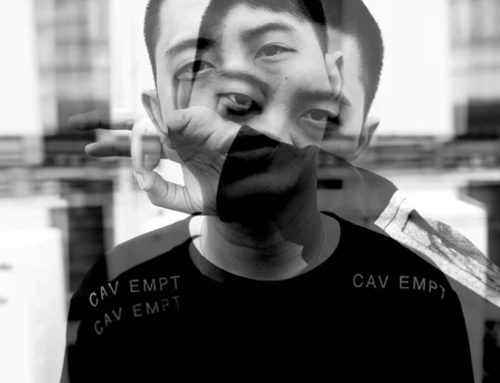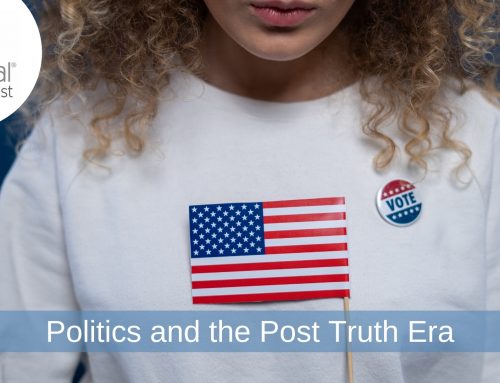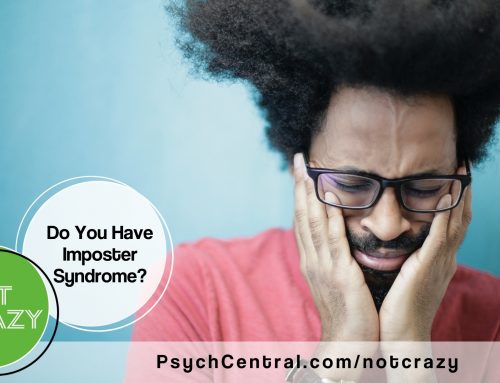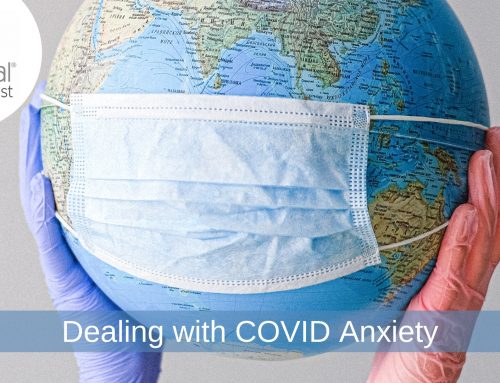Social distancing for COVID-19? You can still go outside! Research has shown that nature has a profound impact on our mental health and cognition: Being in nature reduces anxiety and stress and increases creativity, attention and overall well-being. Today’s guest, Richard Louv, a journalist, author and co-founder of the nonprofit Children & Nature Network, discusses the science behind nature’s healing powers. Click on the player below to listen now!
SUBSCRIBE & REVIEW
Guest information for ‘Going Outside- Mental Health’ Podcast Episode
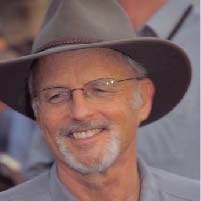
Richard Louv is a journalist and author of ten books. Louv is co-founder and chair emeritus of the nonprofit Children & Nature Network, which supports a new nature movement through partnerships with such organizations as the National League of Cities. In 2008, he was awarded the Audubon Medal, presented by the National Audubon Society. Prior recipients have included Rachel Carson, E. O. Wilson, Sir David Attenborough and President Jimmy Carter.
Computer Generated Transcript for ‘Going Outside- Mental Health’ Episode
Editor’s Note: Please be mindful that this transcript has been computer generated and therefore may contain inaccuracies and grammar errors. Thank you.
Announcer: You’re listening to the Psych Central Podcast, where guest experts in the field of psychology and mental health share thought-provoking information using plain, everyday language. Here’s your host, Gabe Howard.
Gabe Howard: Welcome to this week’s episode of the Psych Central Podcast. Calling into the show today, we have author Richard Louv. Richard is the co-founder and chair emeritus of the nonprofit Children & Nature Network, which supports a new nature movement through partnerships with such organizations as the National League of Cities. Back in 2008, he was awarded the Audubon Medal, presented by the National Audubon Society. Richard, welcome to the show.
Richard Louv: Thank you.
Gabe Howard: Richard, it’s great to have you. A lot has been talked about the connection between mental health and nature, mental health and animals, and I kind of want to start off in this place. I’m a big fan of social media. Love it or hate it, it’s probably here to stay. And one of the things that I often see on social media is this meme that says the best antidepressant is a walk in nature. And I know that you don’t feel that nature replaces medical science, but you do feel that a walk in nature has real, real support and real help for people who are suffering from depression. Can you talk about that for a moment?
Richard Louv: And that’s new, when I wrote Last Child in the Woods, it was published in 2005, this was ignored. The impact of the natural world on human well-being, on health, on cognitive functioning, all of that, it would have been basically ignored. And I could find maybe 60 studies. Many of them were about the growing disconnect between children and therefore adults, too, and nature and some of it. Some of those studies dealt with the benefits and some of those studies dealt with mental health and physical health. That is a drop in the bucket compared to how much money is spent researching just about everything else. And it struck me that something so large as the impact of the natural world experience on human health and well-being had been ignored. How could that be? And as I looked into it, I was working with some neuroscientists then. They were studying brain architecture development in young children. And they were looking at all kinds of things and how that affected brain architecture development. Everything from parent child attachment to bad day care to dangerous neighborhoods and all of that. And those things they were finding literally shapes the brain in early childhood. And I asked them once. Have you ever thought about how the natural world helped shape the brain in young children? Experiences? Actual contact with the natural world? And they looked at me with a blank face and they said, what’s nature?
Richard Louv: And I understand that science has a difficult time defining nature. But, you know, I said to the neuroscientists, this isn’t rocket science. And it isn’t brain surgery. You come up with a hypothesis and test it. One hundred and twenty trees per acre or whatever. They still had trouble with it. So I decided that was one of the reasons why this was so understudied. Is the blind spot in science about nature. The rest of nature of which we are apart. The second reason was, where does the research money come from? What pill can you manufacture? What thing can you commercialize out of that? Now there are some things, I mean parks and outdoor hiking organizations, things like that. There are some. But for the most part, people don’t think about it. Certainly funders don’t think about this as something they can get something out of by funding. That’s changing. Today, if you go to the Children & Nature Network, which you mentioned in your introduction, we have a research library there that we’ve built. And it is for anybody in the world. It Is free. And there are now probably, it’s just tipped over 1000 studies that we have abstracts for and links to the original studies when they’re available. So it’s gone from about 60 to over a thousand in about 14 years after not existing before.
Gabe Howard: I think that it’s interesting that one of the things you said, and this really plays to the pessimist in me is we don’t want to tell people to go for walks because there’s no funding for it and you can’t make money prescribing it. You know, we can’t prescribe one walk a day or, you know, hug your dog every day. That that’s not something that you can fill at the pharmacy. And this is kind of counterbalanced against the, you know, medication is important. Look at the advances that we’ve made with cancer by coming up with, you know, better treatments, etc. But I would even argue that taking somebody who is suffering from cancer and completely isolating them, you know, taking away their friends, their support systems, their animals, and even a window would put them in more of a bad way than they already are. And I think that’s what you’re saying. And you’ve talked about in your work how animal assisted therapy is becoming one of the biggest health care trends. And I don’t think that’s a bad thing. But you also talk about the controversy surrounding it and then you back it up with science. Can you talk about animal assisted therapy for a moment? Because I just find it absolutely fascinating that people wouldn’t respond to this favorably. But I also understand that this is our culture. Everything is good and everything is bad, seemingly at the same time.
Richard Louv: I think it’s more nuanced than that. I think that most people understand that their dog helps them. You know, most people get it at a visceral level. And in terms of organized animal assisted therapy, whether it’s dogs or equine therapy with horses or going outside and connecting with wild animals, no matter what that is. People viscerally understand that. It’s the science is coming now and the science is really interesting. Some of it is controversial, but nobody that has watched a kid with disabilities in an equine therapy or horse therapy, horse assisted therapy setting cannot be not moved. It’s very moving to watch this. One person who works in this field told me that a mother was bringing her child, who is autistic, to the animal assisted therapy sessions, which involved horses. And he would ride horses with a helmet and somebody would lead the horse. And he was, I think, about nine years old and he had not talked ever. And one day when they didn’t go when they were supposed to to the horse therapy, her son walked into the living room and said the word horse, first time she had heard him say a word. So there are moving stories like that. I talk about a woman, another woman who is on the autism spectrum, and she tells quite a moving story about not only how her service dog, whose name is Kobo, helped her, but how she has learned to help Kobo using some of the same techniques that Kobo uses to help her. So often what is occurring is a kind of mutualism is a you know, it’s not one way. I don’t want it to be seen as just what we get out of our relationship with other animals. I promote something in the book called The Reciprocity Principle, which basically holds that for every bit of healing that they give us, that animals, whether they’re domestic or wild animals, give us, we need to give back to them the same. We need to protect them as they protect us.
Gabe Howard: And do you feel that reciprocity is what gives people that boost in mental health? Because you’re not just getting, you know, whether it’s love, companionship from the animal, but you are now responsible for the animals. That gives you a sense of purpose. What the science behind that? Or the, well, what are your thoughts on that?
Richard Louv: Well, I think that’s a really interesting way to put it. I think you’re right. I think, again, it’s not one way. We know a lot. There’s quite a bit of science about animal assisted therapy when it involves domesticated animals where dogs and horses and even goats and other animals. There’s not much known, there’s very little research about what we gain and what we could give regarding wild animals. And I’m sitting here and looking out the window and there’s a deer path goes through my yard. And I can tell you my endorsement spike every time I see deer go by. And as I walk in this neighborhood, we just moved here about a year ago. The deer are responding to me differently. They don’t run away as they stand and watch. And during those moments, it is absolutely impossible to feel alone in the world. One of the issues I deal with in Our Wild Calling is the epidemic of human loneliness. Medical folks, as you know, have been talking about this for about two or three years. They’ve been saying that loneliness, human isolation is about to overtake obesity as a cause of early death, not just because of suicide and that affects that, but because of all the diseases that are associated with loneliness.
Richard Louv: I make the case that, yes, Facebook is part of the problem. Anti-social media is part of problem, that urban design is part of the problem and all of that. But I think that that epidemic of human loneliness is rooted in an even deeper loneliness, which is species loneliness. We are desperate to not feel alone in the world. One of the studies that I find most interesting is of urban parks. And they find that, the study found that, the urban parks that have the best benefit for human psychological health happened to be the urban parks with the highest biodiversity, the highest number of wild animals and plants. Again, I don’t think that’s an accident. We are desperate not to feel alone in the world. And the irony is we are not alone in the world. There is a conversation going on all around us. I call that the intimacy that exists all around us. All we have to do is pay attention.
Gabe Howard: I’m 43 years old, and when I was younger, there were parks and recreation centers all over the place. I could walk to one. And as somebody who suffers from bipolar disorder, I was a very depressed child. I was untreated and my family didn’t know. But I did have these parks. Now, I was an overweight child. And I don’t want to convince anybody that I went on a lot of nature walks. But I did go on some and I was aware that they were there and I did have a place to go. And, you know, this is my childhood in the 80s and now here we are and in 2020. And I don’t have a single recreation center within walking distance from my house. And I live in a neighborhood with children, which means the children in my neighborhood don’t have this. This is a trend that, of course, was created to save money. And because we decided that people didn’t want them. And also, I suppose because we wanted people to pay to join gyms or clubs or golf courses, I guess how do we pull this back? Because, again, even though I didn’t use the parks and recreation centers as much as I could of, I did use them a little bit. And now children don’t have this benefit. Many children don’t have this benefit. What say you to that?
Richard Louv: Well, I talk about cities. I talk about the idea that cities can become engines of biodiversity. They don’t have to be the enemy of nature. And in fact, more and more wild animals are moving into cities, whether we like it or not. And so there’s an opportunity there. This has a lot to do with urban design, with biophilic design. And there’s a lot going on that is of notice is of, is good. There are more and more cities that are creating wildlife corridors through the city so that animals can pass through. And we can have the connection with them. There are more and more urban gardens. There are more and more native plant gardens. People are turning in their backyards into native plants, which of course is what nurtures the food chain because of insects. And then they can bring back bird migration routes. They can bring back bees. They can bring butterfly migration routes. So there’s a lot going on out there people really aren’t aware of. Now, you’re right, the trend has been against. I mean, even in schools, the trend has been toward either dropping or reducing recess in elementary school or some elementary schools are now being built with no playgrounds, let alone a natural playground. On the other hand, there’s a real trend among many schools to create natural play spaces.
Gabe Howard: We’re going to step away and we’ll be right back after these messages from our sponsors.
Sponsor Message: This episode is sponsored by BetterHelp.com. Secure, convenient, and affordable online counseling. Our counselors are licensed, accredited professionals. Anything you share is confidential. Schedule secure video or phone sessions, plus chat and text with your therapist whenever you feel it’s needed. A month of online therapy often costs less than a single traditional face to face session. Go to BetterHelp.com/PsychCentral and experience seven days of free therapy to see if online counseling is right for you. BetterHelp.com/PsychCentral.
Gabe Howard: We’re back discussing the interplay between nature and mental health with author Richard Louv.
Richard Louv: You mentioned bipolar. I want to tell you, I’ll try to keep it short, a story about that. My father, my family and I tell this story in The Nature Principle. Our best times when I was growing up were in nature. They were spent fishing or in the backyard, in the garden or in the woods behind our house where I walked with my father and followed rabbit tracks and all that. That garden was particularly important. I remember following him as he would rototiller the back yard and then I would run around and I would pick up bones and other things and rocks out of the ground. He was happy there and over time we moved to a more affluent neighborhood. He got a better job. We didn’t need to garden anymore, supposedly. And he seldom went outdoors. He was a devoted fisherman. His dream was to retire early and move to Lake of the Ozarks or one of the lakes in the Ozarks. They finally did that, to Table Rock Lake in southern Missouri and got a little house and he finally got his dream. But by then, it was too late. He seldom left the kitchen table. He was probably bipolar and he was an alcoholic on top of that.
Richard Louv: Which produces some of the symptoms of schizophrenia. It was not a pleasant time, from the time I was about eleven on in terms of my dad, I tell that story in The Nature Principle to confess that I have a bias. I have a bias that nature experience is connected to health, to mental health, to physical health. Because of that early experience now, I don’t cherry pick the studies that I cite and almost all of them point the same direction. But I do admit that I have a bias. He did not have a happy ending. And I wonder sometimes what would have happened. And I asked this question, what would have happened if not only psychiatry in the late 50s, early 60s, had included children in the family, included the rest of the family? They did not. And what would have happened if nature therapy had been popularized by then? Could that have helped him? I asked some eco psychologists that question. They say, of course, they can’t tell. They don’t know. But what they, what one said is that we know for certain it would have made life better for you and your mother and your brother.
Gabe Howard: I really like that story and I like what you say there, because there are moments where people are happy and sometimes we don’t give those moments enough do. We don’t pay enough attention to those moments, whether it’s working in the guard and going for a walk, reading a book, making dinner, whether we find happiness in in a mundane task or not. And I know that
Richard Louv: Right.
Gabe Howard: Especially in America, we really look down on manual labor. As you said, he got a better job. So he didn’t need to have a garden. He didn’t need to work in a garden, even though it was something that made him happy. Do you think that there’s just a bias against gardening or working in nature where people feel that they’re too successful to do it, as you suggested in your story? Is this going on in in droves around America where people just don’t want to do it? Because after all, that’s beneath them or whatever words you want to use, because the average family does not have a garden anymore.
Richard Louv: Well, I don’t think that there’s a bias specifically toward gardening. There’s not a bias specifically toward hiking or anything else that people do outdoors. What has happened is these barriers to that experience have risen. And one of them is affluence. One of them, my father, got a better job. It demanded longer hours. It imbalanced his life and ours. So I don’t think it’s really a bias against that. You’re right about manual labor, but not about those experiences that connect us to the natural world. In fact, there’s quite a resurgence in gardening. And as I mentioned, in native plants in our yards and focusing on that more, that’s part of the good news. There is a lot of good news out there, even though the trends may not look like they’re going in the right way. There’s good news in terms of urban design, biophilic design. There’s good news in terms of an awareness now that nature has something to do with our health, our mental health and our physical health, those experiences. I can tell you that did not exist very much in 2005, not among the general population.
Richard Louv: There was a study done a few years ago called The Nature of Americans that reproduced research that was done about 20 years ago, and they compared how people felt about different aspects of nature. What they found was that families that people, particularly parents. That their awareness that nature experience is connected to health had skyrocketed since 2005. What has not happened is the barriers have not gone down. They’re still there. Now, there are people working very hard to reduce those barriers, particularly for kids, but for all of us. And they’re working on that all over the world. I think China and Brazil that have launched programs to connect kids to nature and therefore their whole families. You mentioned the National League of Cities. We’re working with that organization, which represents 18,000 mayors and other municipal officials to try to help cities become better places to connect families to nature. Schools. There are now nature preschools have taken off is a phenomenon. They’re sometimes called forest schools. There’s an increase of about 500 percent of those just in the last few years. So there’s a lot of good stuff happening.
Gabe Howard: Richard, thank you so much for being on the show. Do you have any last words for people who want to get out in nature more? But as you mentioned, the barriers are just too much. How can they overcome them?
Richard Louv: Well, one is to be careful how you define nature. It doesn’t have to be Yosemite. It can be in an urban neighborhood. You know, there was a program a few years ago that the Sierra Club had. What they do is go into urban neighborhoods. They put backpacks on kids and go for a five mile walk in their neighborhood and they would look for nature. They’d always find it. Sometimes in the cracks between the sidewalks, sometimes in the alleyways. If you change your perspective of what nature is, you’ll find it. The second thing is conservation is no longer enough. Now we have to have to create nature to maintain or bring back the kind of biodiversity we need. In the act of creating urban gardens, in the act of planting trees in cities, children and their parents reconnect to nature and they feel really a lot better about themselves, about where they live. All of that. But finally, I would say, you know, in addition to seeking out information on how to do that, because it doesn’t come naturally to the new generation of parents, or at least many of them, because many, most of them did not have much experience when they were kids in nature as I did. So, it doesn’t necessarily come that naturally. And they don’t even know where to start sometimes when they want that.
Richard Louv: But it’s possible, particularly if you band together with other families. People are starting Family Nature clubs. Family Nature Club in San Diego now has about, I believe about 3,000 families as members of it. And that’s a pool of families you can dip into and find out if somebody wants to go take a hike, multiple families next Saturday. That deals with the fear of strangers. That deals with the sense that we don’t know how to do this, but other parents do. So there’s all kinds of ways to do it. But it has to be a conscious act. We put sports on the calendar. We should put nature there, too. And finally, and this is the primary lesson, I think, of Our Wild Calling, is to recognize that there is intimacy all around us. There is connection all around us. But to find that, to hear that conversation, you have to pay attention. And that’s why, you know, as we’re talking, a row of wild turkeys just walked by my house. And I pay attention to that. I think about what they’re doing. I think about what they’re feeling. Empathy is the greatest way, I think, to take us out of ourselves.
Gabe Howard: Richard, I love that. Thank you so much for being here. Where can folks find you on the Internet?
Richard Louv: Well, I have a Web site, RichardLouv.com. And that’s L O U V is the last name, but also the Children & Nature Network, which is ChildrenAndNature.org. And of course, Amazon, you can find me there, obviously.
Gabe Howard: Thank you, Richard, for being here and thank you to our listeners for tuning in. Wherever you downloaded this podcast, please rate, rank and subscribe. We would really appreciate that. Share us on social media and use your words in the description and tell folks why you like the show and why you listen. Finally, remember, you can get one week of free, convenient, affordable, private online counseling anytime, anywhere, simply by visiting BetterHelp.com/PsychCentral. We will see everybody next week.
Announcer: You’ve been listening to The Psych Central Podcast. Want your audience to be wowed at your next event? Feature an appearance and LIVE RECORDING of the Psych Central Podcast right from your stage! For more details, or to book an event, please email us at show@psychcentral.com. Previous episodes can be found at PsychCentral.com/Show or on your favorite podcast player. Psych Central is the internet’s oldest and largest independent mental health website run by mental health professionals. Overseen by Dr. John Grohol, Psych Central offers trusted resources and quizzes to help answer your questions about mental health, personality, psychotherapy, and more. Please visit us today at PsychCentral.com. To learn more about our host, Gabe Howard, please visit his website at gabehoward.com. Thank you for listening and please share with your friends, family, and followers.
This article originally appeared on Psych Central as Podcast: Using Nature and Animals to Manage Anxiety.









